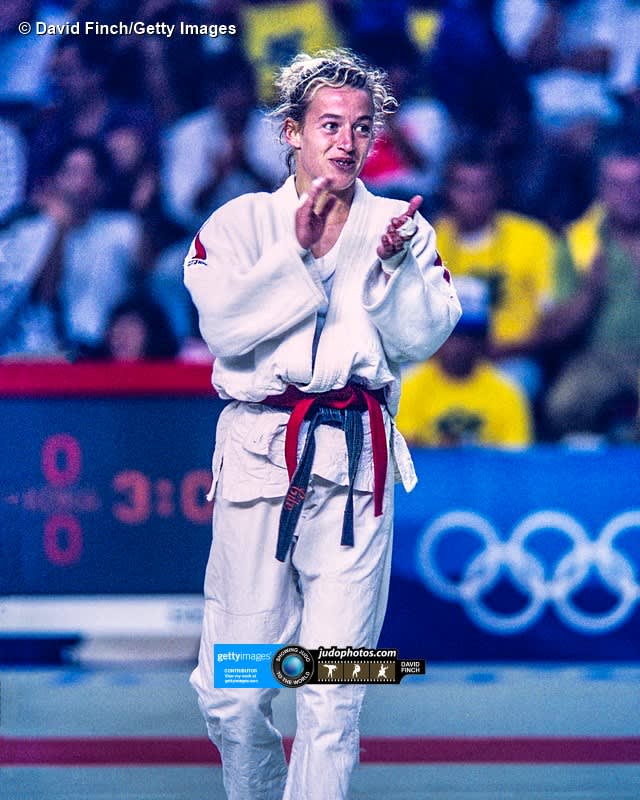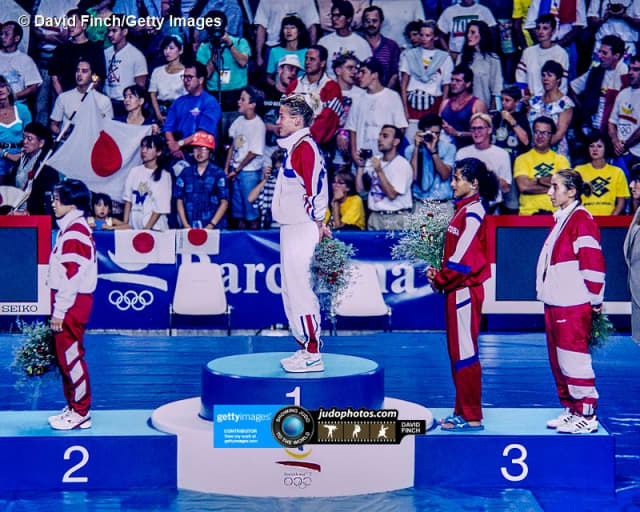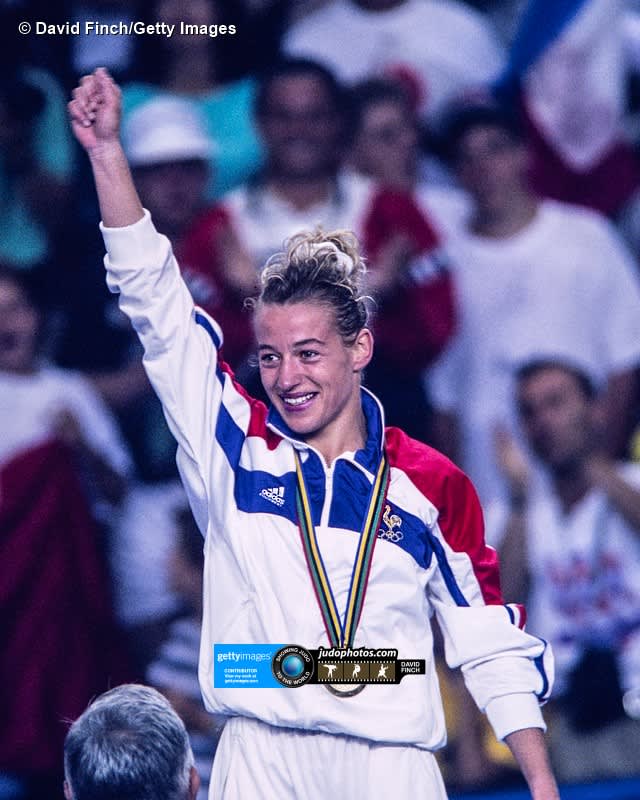We introduced the statistics, the almost impossible feat and the question in our first article in the series, which can be found here:
https://www.ijf.org/news/show/151-olympic-champions-tokyo-to-tokyo
A reminder of the question:
It could be said that to be in the company of an Olympic judo champion is to be presented with someone whom has reached an absolute pinnacle, a ceiling which cannot be surpassed; there is nowhere further to ascend in the world of sport. We often find Olympic champions speaking with freedom and certainty, unafraid to share an opinion, speaking of their lives and journeys with confidence. For many we feel there is peace, and that can be magnetic and inspiring.
So the question is, did they become Olympic champion because of that character or did they become that person having won the Olympic gold medal?
“I was not meant to be a judoka or even in the world of sport as my parents are not in the world of sport. I have two brothers and I am in the middle of them. My family come from the north of France, not like the big city of Paris. At first they wanted me to practise a combat sport to protect myself. The family didn’t have the idea that I should be a girly girl, more like a Tom boy."
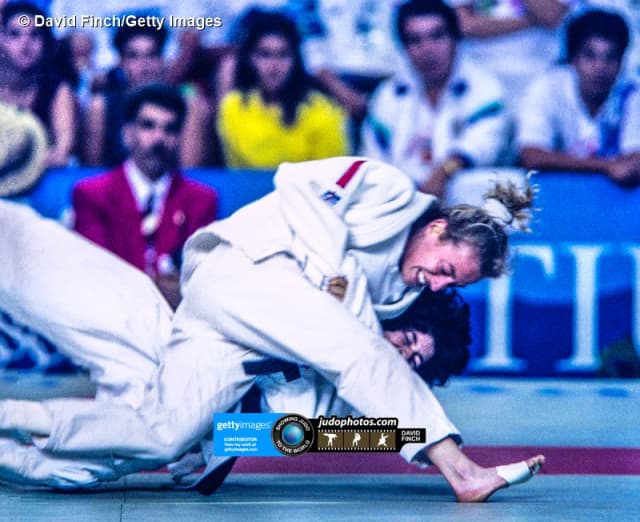
"I started judo at 11. I liked to fight a bit at school and so at judo I found a place to fight in a different way. The teacher was amazing and brought me to competition early. I hated to lose and so that was in me from the beginning.
When I was 17 I won the Orleans Tournament which was a women’s only event, the pre-cursor to women being included in the Paris Grand Slam; it was a big international tournament. There I beat the world silver medallist who was also French. I was then named as a reserve for the next senior world championships. After that win in Orleans things changed a lot and I was training more seriously; the opportunities changed too."
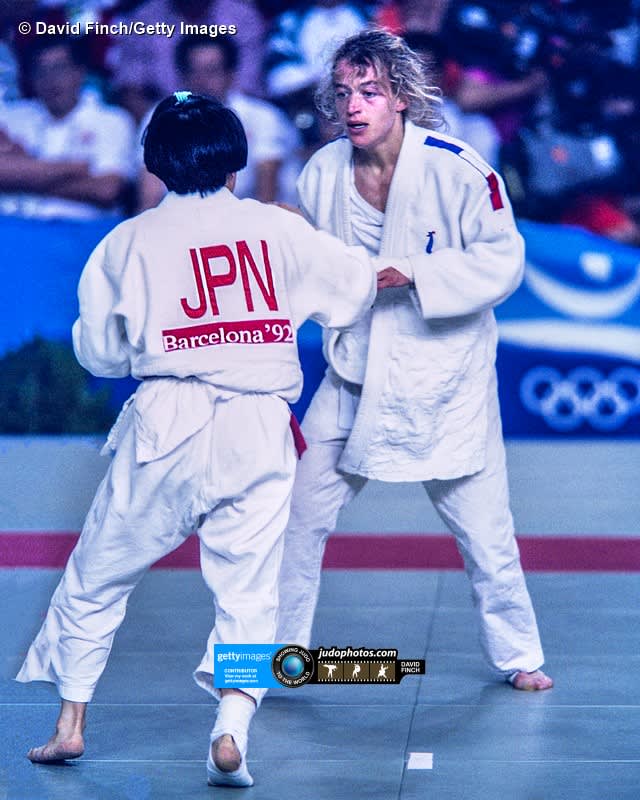
"I won what we now think of as the Paris Grand Slam 4 times but two of those wins were in Orleans prior to Paris including women; that finally happened in 1988. After that I went to INSEP which was difficult for me. I left my family and my home, a home where I’d had just school and sport separately but in INSEP everything was integrated and so it was a really different life. I was 17. It is important to underline that some arrive at INSEP and they cannot adjust to the new lifestyle and they quit. I had resilience and I persevered through that time.
I had to change my judo from right-handed to left-handed. The judogi was a different shape back then and I couldn’t grip the sleeve as I wanted to so changing the gripping to the other side solved it. Every day I was first to arrive and last to leave and this discipline brought progress."
"My first difficult moment was the entry to ISNEP. The second was for my first senior worlds, 1987, but I was injured at the event. That was very difficult for me as it was a qualification event towards selection for the 1988 Seoul Olympics which was a demo event for women rather than the full integration we have now. It was hard because the French federation lost at the worlds; no-one qualified the Games and I got injured. After that loss I had a hard time with the coaches and some people really let me down. It taught me how to first count on myself before others. To have others supporting is a plus but I had to trust myself first."
"I had surgery on my knee and the rehab was intense, I wasn’t allowed to go out of the rehab centre. I managed to go to Paris to watch the tournoi during that time, with my original club coach, in ‘88 I think, and that spurred me on. I told myself I would be back and that I would win the Tournoi at the Coubertin and then I did, won in the following year. Every day I woke up saying ‘I’ll be back, I’ll be back.’ It was like a self fulfilling prophecy. It was a moment of big change for me.
I had two coaches who believed in me, from INSEP, Christian Dyot & Guy Delvingt. Guy was all about repetition and work. Christian was concentrated on tiny, precise adjustments just for me and also the psychological side. They believed in me and also pushed me. They kept my feet on the ground but also broadened the horizon.
I won the Europeans 4 times and Paris 4 times and then the worlds in Barcelona in 1991 and I knew then that I was selected for the 1992 Olympic Games. During that year after the world gold, I was dreaming of the Olympic title, visualising it and telling myself I would win at the Olympics. I said it every day. I was programming myself to win.
It wasn’t the type of visualisation or self talk to add negative pressure. If I’d have lost I would have told myself that they were stronger but I put all the chances and opportunities on my side and I was ready. Of course this was part of my character."
"France organised a tour of Olympic judo champions as a promotion for French judo, going to many different regions. We all talked about it and for me everything was feeding my competitive trait. We all had this will to win and hated to lose. We never liked to lose, of course, and none of us left any space for excuses.
Of course Christian and Guy helped a lot but I put myself in the centre of my career, that was necessary. When the medal was won, it didn’t change me. My life is and has always been a competition. I fight in everything in do.”
Competitive from her earliest memories, resilient and also stubborn, Cecile Nowak became Olympic champion in 1992 and each of those traits remains with her.


